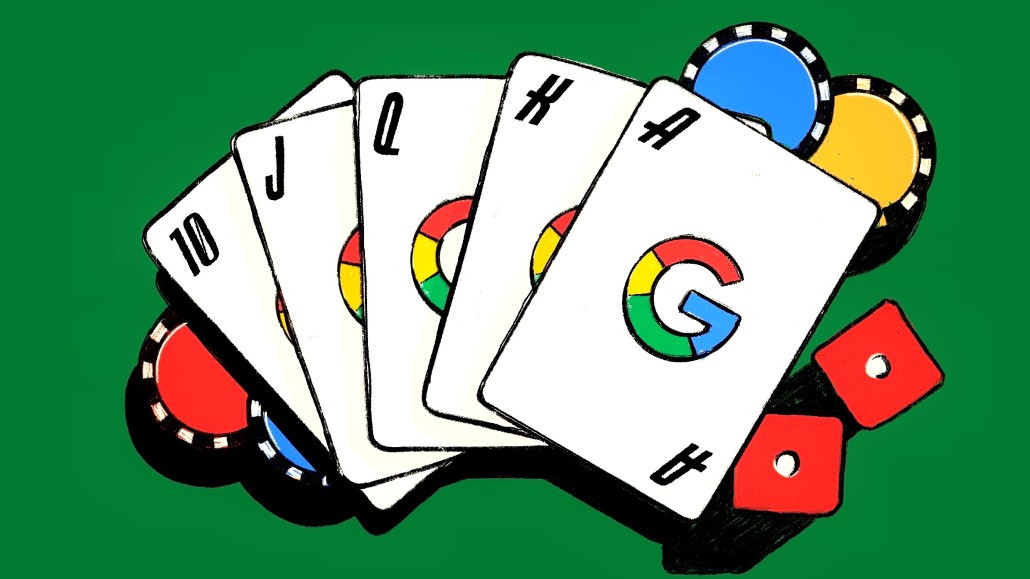Secure your place at the Digiday Media Buying Summit in Nashville, March 2-4
Ad Tech Briefing: Is Google’s curation tool a play for second-mover advantage or an antitrust swerve?

This Ad Tech Briefing covers the latest in ad tech and platforms for Digiday+ members and is distributed over email every Tuesday at 10 a.m. ET. More from the series →
Last week, Digiday asked the question, “Is there any point in breaking up Google?”
Asking this question was not an exercise in advocating for laissez-faire economics. Rather, it attempted to determine whether the government was trying to apply a 20th-century regulatory tool to a 2010s market problem in the late 2020s.
Curation = transformation?
A key development in the latest stage of evolution is the rise of ad curation — technology that filters and organizes advertising inventory to improve efficiencies. That’s the sales pitch, at least.
The rise of curation marks a broader trend toward shifting decision-making power, i.e., who gets the ad dollar, closer to the sell side of the advertising ecosystem. Theoretically, this empowers publishers, as traditionally, demand-side platforms have controlled most of the decision-making.
Advocates of sell-side ad curation argue these new tools enable supply-side platforms to exert more influence. Thus, it can (potentially) reduce walled gardens’ dominance, improving transparency. Again, that’s the sales pitch.
Of course, a notable advancement is the launch of Scope3’s AI-driven brand safety and ad curation tools. In a surprising collaboration, Google has recently taken an active role in this evolving curation space.
At Scope3’s March 13 launch event, Google Ad Manager’s Darline Jean appeared alongside Scope3 CEO Brian O’Kelley to discuss her outfit’s curation platform. Arguably, this on-stage duo truly reflects just how much things have changed in recent years, given O’Kelley’s status as an erstwhile Google foe, who even testified for the Justice Department in the September antitrust case.
Google’s ‘modular’ approach
Certain sources have interpreted Google’s November launch of its curation platform as a means of offsetting the potential impact of regulatory actions. Principally, a forced divestiture of Google Ad Manager — the structural remedy favored by the DOJ.
Some industry observers speculate that Google’s involvement in curation could be a preemptive measure to maintain influence over ad transactions, even if the courts mandate such a sell-off.
One Digiday source, who declined to be named to maintain business relationships, noted that Google’s curation platform’s emergence represents a more modular approach than its earlier iteration, its walled garden.
Speaking at the Scope3 launch event last month, GAM’s Jean observed how Google’s curation offering was DSP-agnostic and that it “pushed the decision [layer] into the SSP because it is more efficient. In doing that, we provide the brands and agencies with a lot more transparency,” she added. “But the most important part is the increase in match-rates we see.”
DV 360 ‘not up to scratch’?
Google’s curation tool is still in beta, with Jean noting that it took so long to launch the offering was a byproduct of large organizations seldom being first the first to such market crazes. Meanwhile, a separate source, who requested anonymity, observed how Jean’s vision for Google’s curation platform — one that makes its DSP DV 360 “look like it’s not up to scratch,” per the source — was notable. “If I was preparing to go it alone, that’s how I’d want it to look,” the source added.
As curation becomes more integral to media buying, it may alter power dynamics across the ad tech supply chain, with risks and opportunities for both the buy-side and sell-side of the industry.
However, the question is, will it result in Google remaining on top, even if the DOJ’s efforts decapitate it?
If you feel strongly about any of the issues discussed above, then feel free to get in touch – no PR pitches please.
More in Media Buying

Future of TV Briefing: CTV identity matches are usually wrong
This week’s Future of TV Briefing looks at a Truthset study showing the error rate for matches between IP and deterministic IDs like email addresses can exceed 84%.

Canadian indie Salt XC expands its U.S. presence with purchase of Craft & Commerce
Less than a year after buying Nectar First, an AI-driven specialist, Salt XC has expanded its full-service media offerings with the purchase of Craft and Commerce.

Ad Tech Briefing: Publishers are turning to AI-powered mathmen, but can it trump political machinations?
New ad verification and measurement techniques will have to turnover the ‘i just don’t want to get fired’ mindset.









